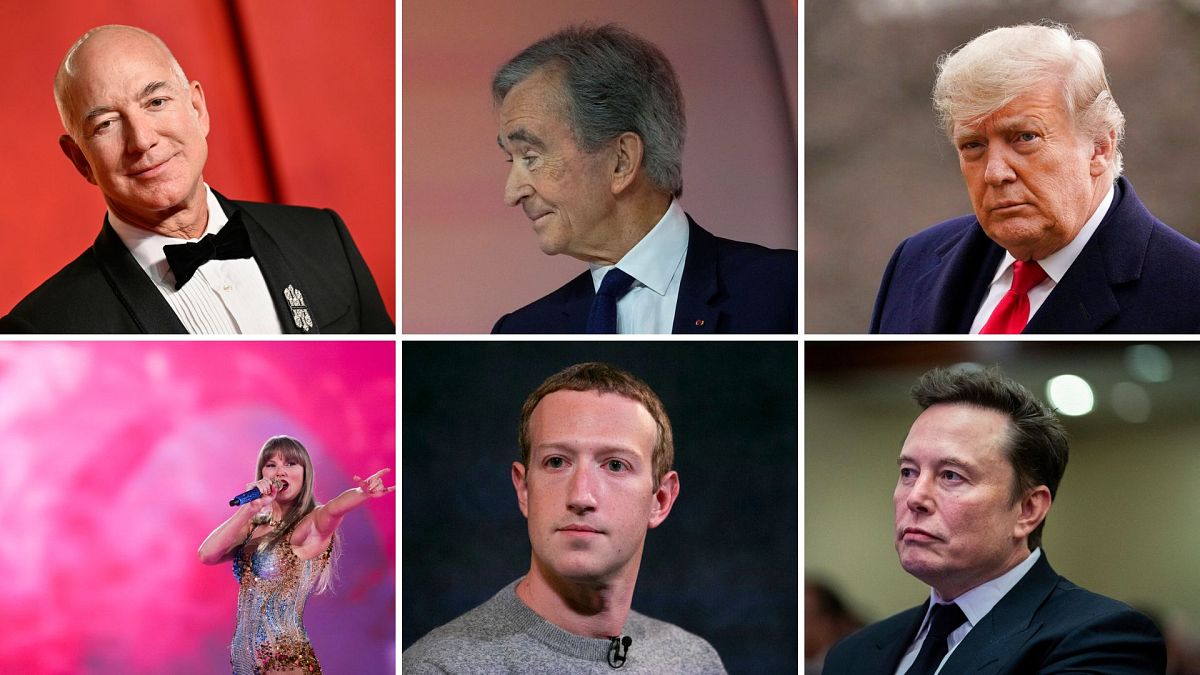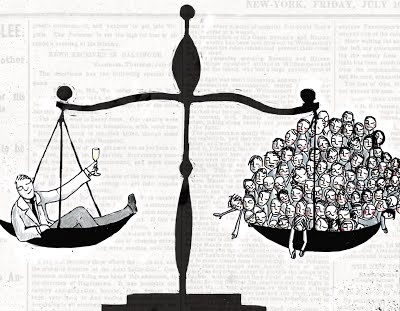Billionaire Wealth Surges as Global Poverty Stagnates: Oxfam Report Highlights Growing Inequality
In 2024, the wealth of billionaires surged dramatically, as reported by Oxfam International in its latest assessment coinciding with the World Economic Forum (WEF) in Davos, Switzerland. The report reveals that billionaire wealth grew by $2 trillion, averaging approximately $5.7 billion per day a pace three times faster than the previous year. This increase brought the total wealth of billionaires to around $15 trillion and saw their ranks swell to 2,769, with an additional 204 individuals compared to 2023.

Billionaire Wealth Surges as Global Poverty : Oxfam Report
Key Findings from Oxfam’s Report
Wealth Accumulation Rates
- Billionaire wealth increased at a rate of $5.7 billion daily.
- The ten richest individuals saw their wealth grow by nearly $100 million each day.
- Four new billionaires were created weekly throughout the year.
Concentration of Wealth
- Oxfam predicts the emergence of at least five trillionaires within the next decade, up from last year’s forecast of one.
- Approximately 60% of billionaire wealth stems from inheritance, monopolistic practices, or power connections, rather than individual entrepreneurship.
Global Inequality Concerns
Despite this enormous accumulation of wealth, Oxfam’s report underscores a troubling stagnation in global poverty levels. Since 1990, the number of people living on less than $6.85 per day has remained largely unchanged. This stark contrast between the wealth of billionaires and the persistent poverty highlights the growing divide in global inequality.

Outgoing U.S. President Joe Biden recently echoed these concerns, cautioning against a “dangerous concentration of power” among a small elite. Oxfam’s report reinforces this sentiment, urging governments to implement progressive taxation and measures to address economic disparities and the undue influence of billionaires on policy.
The Impact of Billionaire Wealth on Global Poverty
The rise in billionaire wealth has significant implications for global poverty:
- The richest 1% now owns nearly 45% of all global wealth, exacerbating economic inequality. This disproportionate control of resources leaves billions struggling to meet basic needs.
- Oxfam’s findings suggest that 60% of billionaire wealth is “taken, not earned,” stemming from inheritance, monopolies, and cronyism. These practices extract resources from lower-income populations, particularly in the Global South, funneling wealth to the Global North.
- The simultaneous rise in extreme wealth and persistent poverty represents a major setback. The World Bank estimates that, at current trends, eradicating extreme poverty could take over a century, jeopardizing the UN’s goal of ending poverty by 2030.
Oxfam advocates for the implementation of a modest wealth tax on billionaires, estimating it could generate $1.7 trillion annually. This revenue could lift approximately 2 billion people out of poverty and fund critical social services such as healthcare and education.
Implications for Davos 2025
As global leaders and elites convene at Davos, discussions are expected to focus on economic growth and investment opportunities, despite the glaring backdrop of inequality. The WEF will host around 3,000 participants, including business leaders, academics, and government officials. Emerging technologies like artificial intelligence and their economic impacts will likely dominate the agenda, raising concerns about potential disruptions to labor markets.
Read this:
While billionaires’ fortunes have soared in 2024, the persistent issues of poverty and inequality demand urgent attention. The concentration of wealth among a small elite poses challenges to economic stability and social equity, highlighting the need for systemic reforms. As policymakers and global leaders gather in Davos, the onus is on them to address these disparities and create a more equitable world.


 Trump Slaps Tariffs on Asian Nations, but India Secures Exemption
Trump Slaps Tariffs on Asian Nations, but India Secures Exemption  How InnoMake Shoes Make Navigation Safer for the Blind
How InnoMake Shoes Make Navigation Safer for the Blind  New Coronavirus Wave Hits India: What We Know
New Coronavirus Wave Hits India: What We Know  Trump Threatens 25% Tariff on iPhones and Other Smartphones
Trump Threatens 25% Tariff on iPhones and Other Smartphones  Did Trump Halt Harvard’s Foreign Enrollment?
Did Trump Halt Harvard’s Foreign Enrollment?  World’s Most Populous Cities: Population, Living Conditions, and Health
World’s Most Populous Cities: Population, Living Conditions, and Health